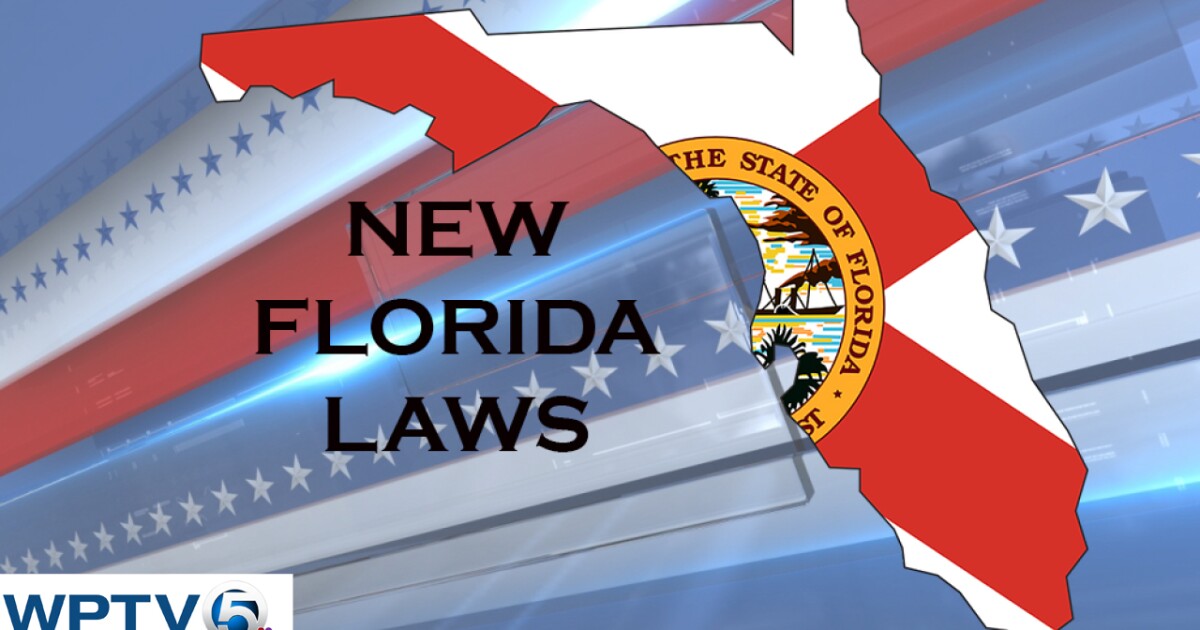Tampa News
In January, Florida will see the implementation of new laws. Here’s a rundown of what you should know

Drivers are advised to take note of the extension of the “move over” law, which comes into effect starting Monday.
In the onset of 2024, a variety of alterations to state laws will come into effect in Tallahassee. These changes encompass a broad spectrum, ranging from the expansion of Florida’s “move over” traffic law to more stringent regulations concerning investments related to Iran.
During the regular legislative session of 2023 and subsequent special sessions, lawmakers sanctioned five laws slated to be enforced in January. However, the advent of 2024 brings forth additional modifications, spanning from revised rules for campsite reservations to the discontinuation of a program offering credits to frequent users of toll roads.
One prominently visible modification is the amplification of the “move over” law. This amendment mandates drivers to vacate lanes closest to stationary vehicles, including police cars, ambulances, and utility trucks.
Under a comprehensive transportation bill (HB 425) enacted during the regular session, beginning Monday, motorists are required to allow space when disabled vehicles are stopped, with visible individuals or warning lights, along roads. Violations may result in fines of up to $158 for noncriminal traffic infractions.
Simultaneously, a change introduced during a November special session, demonstrating support for Israel during the conflict with Iran-backed Hamas, will take effect. The law (HB 5C), starting Jan. 10, expands the list of “scrutinized” companies where state investments are prohibited due to ties to Iran.
Lamar Taylor, interim executive director and chief investment officer of the State Board of Administration overseeing state investments, stated that they are on track to implement the legislation by the effective date. This expansion builds upon a 2007 state law, requiring divestment from “scrutinized” companies linked to Iran’s petroleum industry.
Companies will be added to the list under the expansion if more than 10% of total revenues or assets are tied to Iran in sectors like energy, manufacturing, or shipping. Firms can avoid inclusion by demonstrating “substantial action” to rectify the flagged issues.
In addition to the aforementioned changes commencing in January:
- A yearlong program offering credits to frequent toll road users concludes on Sunday, providing 50% credits to motorists using SunPass or other Florida transponders with 35 or more toll road trips in a month.
- Mayors and other elected municipal officials will now be obligated to submit more detailed financial disclosure information, covering incomes, assets, and liabilities. This aligns with the existing practice of legislators and statewide elected officials filing more comprehensive forms.
- Florida businesses are set to experience an overall 15.1% decrease in workers’ compensation insurance rates, though specific rate adjustments will vary for individual businesses.
- A back-to-school tax “holiday” will be in effect from Monday through Jan. 14, allowing shoppers to avoid sales taxes on clothes under $100, school supplies under $50, learning aids under $30, and personal computers under $1,500.
- Floridians can reserve campsites and cabins at state parks 11 months in advance, while non-Floridians will have a 10-month reservation window.
- County courthouses will be required to provide lactation spaces by Monday, with some exceptions.
- The expansion of eligibility for coverage in the KidCare subsidized health insurance program includes the establishment of premium tiers by the Florida Healthy Kids Corp., based on household incomes.



















You must be logged in to post a comment Login